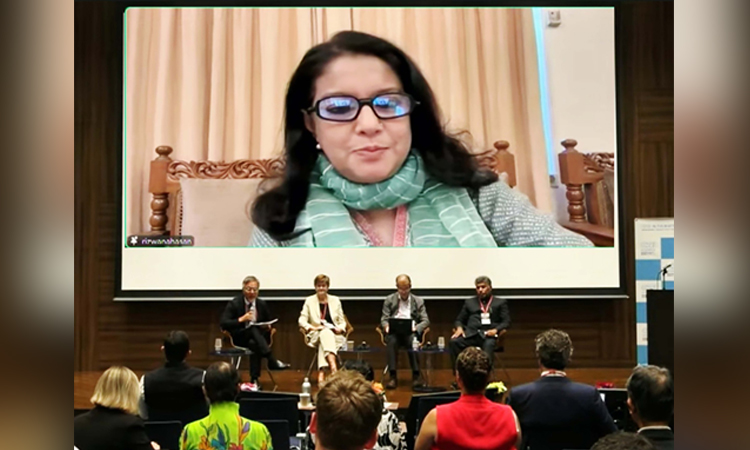News Flash
News Flash

DHAKA, Sept 3, 2025 (BSS) - Environment, Forest and Climate Change Adviser Syeda Rizwana Hasan today called for robust international collaboration and multi-sectoral cooperation to protect the planet's marine ecosystems.
She said that achieving Sustainable Development Goal 14 (SDG-14) hinges on unified global commitment as an essential path to preserving oceanic resources for generations to come.
Rizwana, also the adviser of the ministry Water Resources, highlighted these necessity while speaking at the plenary session titled "Driving Ocean Leadership and Innovation: Advancing Governance, Blue Economy, and Marine Science to Achieve Thirty by Thirty", joining virtually from her residence here.
The session was part of the "Ocean Decade Fifth Foundations Dialogue - High-Level Roundtable with Ambassadors, Experts and Practitioners" held at the international conference hall of the Sasakawa Peace Foundation building in Tokyo, Japan.
The adviser said that Bangladesh ranks ninth globally in plastic pollution, a large portion of which originates from neighboring countries.
She emphasized that the ongoing global treaty to combat plastic pollution must include special provisions for geographically vulnerable countries.
She further warned that the ship-breaking industry poses a severe threat to Bangladesh's coastal environment, describing the Hong Kong Convention as "inadequate" in addressing the issue.
Highlighting the significance of the Bay of Bengal to Bangladesh's economy, regional connectivity, and development, the adviser said that the government has already implemented the "Assessment of Coastal and Marine Biodiversity Resources and Ecosystem" project.
This initiative has led to the creation of a national database, conservation management plans, and monitoring protocols. Research on sea-level rise and its impacts has also been completed under the project.
Referring to the country's rich marine biodiversity, she called for enhanced international cooperation. She also stressed the untapped potential of Bangladesh's marine fisheries sector, saying that these resources have not yet been properly assessed. She invited international partners to invest in sustainable seafood processing industries in Bangladesh.
Sounding a warning, Syeda Rizwana Hasan said that without effective measures to curb global warming, one-third of Bangladesh's land may go under water, displacing millions.
She added that 52 small island states around the world face the same threat, underscoring that global solidarity is now more crucial than ever.
Other distinguished speakers included Dr Atsushi Sunami, President of the Sasakawa Peace Foundation, Kristin Iglum, Ambassador of Norway to Japan, Prof Yutaka Michida, Chair, UNESCO-IOC, Dr Saif AlGhais, Chair, IOCINDIO Sub-Commission, and Ilana V Seid, Chair and Permanent Representative of Palau to the UN Alliance of Small Island States (AOSIS).